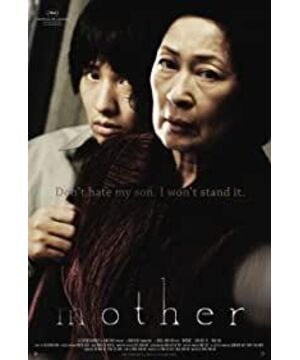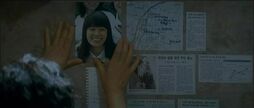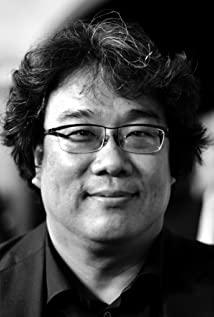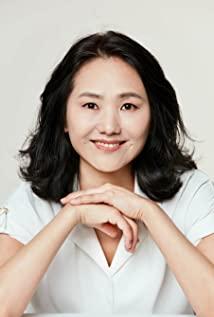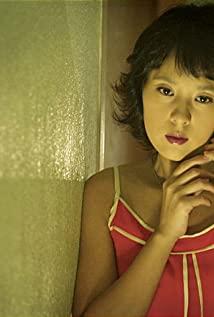"Parasite" makes Bong Joon-ho a battle to become a god. Cannes Palme d’Or, the best Oscar film, the commercial film circle and the art film circle pay at the same time, and the exaggerated advertising slogan, "Asian version of Hitchcock and Kubrick" is ready to come out. Unfortunately, the historical status of filmmakers has never been purely dependent on awards and box office. Only time and lasting influence can prove everything.
There is no need to compare Bong Joon-ho on a global scale. Does he have a unique style in the Asian film circle? In terms of narrative art and scene scheduling, does he show obvious superiority? Feng Junhao’s compatriot Hong Changxiu often uses a narrative structure of repetition and difference to reflect the uncertainty of memory, the ambiguity of emotion, the possibility of life and even the irony of self. Apichatpong, Thailand, uses the impermanence of Buddhism and the similar reincarnation time structure to construct the nether space. Kitano Takeshi in Japan uses a scene of strong contrast between movement and static, and an instantaneous transformation of life and death. Even if it is misplaced with the director of an art film, Johnnie To of Hong Kong is a very suitable target. Fans who have watched galaxy video films cannot forget its overly distinctive formal style: complex narrative tricks, scene scheduling that infinitely amplifies static spatial tension, unpredictable relationship matrix among multiple people, and black destiny motif.
In "Memories of Murder", "Han River Monster", "Mother", "Parasite" and other Korean local movies filmed by Bong Joonho, in terms of authoring tags, Bong Joonho has indeed built a very Bong Joonho world. : Crime types, gamification narrative, class antagonism, resistance to power. He impressed the audience the most at the level of narrative and scene scheduling is probably the reversal of the narrative. But reversal is really not a clever narrative. The sensory effect is simply described, that is, it is momentary. This is somewhat similar to the spiciness of Chinese people's food tastes in recent years. Spicy is not a taste at all, it's just painful, but it has an immediate refreshing sensation. Spicy, no need for careful crafting. Simple and rude, instant out, instant gratification. This is very different from the traditional Huaiyang cuisine and Cantonese cuisine, which is time-consuming and labor-intensive to create an endless aftertaste style.
The filming team of Johnny To’s Galaxy can shoot “Lone Man and Widow” and “Single Men and Women” with the rhythm and motif of action movies. In movies such as “Gunfire”, “PTU” and “Fantasy”, they can collectively Brainstorming, concocted the infinite aftertaste that requires the audience to continue to memorize and analyze in order to appreciate the beauty, and all this corresponds to the inner law of the world of the community to see through and operate the black politics under the table.
In "Memories of Murder", Feng Junhao used the inversion frequency, and the frequency is already very high. But it is related to the motif of the whole movie. Constantly making mistakes about the murderer, and the shocking effect brought about by the reversal is rooted in the poor rule of man and the operating mechanism of the human society in South Korea at the time of the incident. The stupid and low-intellectual way of handling cases has brought reversal, and the constant reversal has become a kind of irony. The reversal in "Mother" is related to the role identification mechanism set in the film, and the constant reversal makes the audience's sense of identity with the mother mutated. But the problem is that the variation of identity has no substantial impact on the shaping of the character itself and the broadening of the motif. When it comes to "Parasite", it is completely downgraded to reverse for reversal.
In countless interviews, Feng Junhao has frankly that the directors who have had the most influence on him are Hitchcock and Chabrol. Looking at his works, Chabrol’s influence is more reflected in the motif of class antagonism, and the most substantial influence is definitely Hitchcock, the master of suspense film. "Mother" is a highly praised film in Feng Junhao's work. A large number of fans are intoxicated by the sunset dance of the protagonist of the mother, so that Jia Zhangke later let Zhao Tao dance at the end of "The Old Man of Mountains and Rivers". Great discount. Taking "Mother" as a case analysis, we can clearly see the embarrassment and dislocation encountered by Feng Junhao using Hitchcock's law.
"Mother"'s reference to Hitchcock is not just in a few small scenes. In the opening scene, the scene of the mother cutting medicinal materials with a guillotine and the cross-editing of her son Tao Jun playing with the scene constituted a strong sense of suspense, but in this editing there is a special meaning of the mother staring at the camera, which is very Hitchcock's technique. In a scene where his mother sneaked into Zhentai's home to find evidence of crime, the mother tiptoed away, accidentally knocked over the water bottle, the water slowly flowed out, and she was about to touch Zhentai's finger, triggering a crisis. In Bonitzer's terminology, this is the spread of taint, which embeds the motif of crime while mobilizing perceptual attention and playing with the audience. The historical source of this scene is "Scary"-the heroine Marion's white car was pushed into the swamp by Norman Baez. The car was halfway down and suddenly stopped moving. The staring Baez and the audience were panicked together. , Unexpectedly, a few seconds later, the car sank again. In this scene, while Hitchcock molested the audience, he created a terrible sense of identity with Norman Baez. However, the burglary scene in "Mother" is too simple, and it is completely different from the complicated and frightening scene of Marnie stealing money from the safe in Hitchcock's "Brilliant Thief".
Western film academia has a lot of research on Hitchcock. Its scale, intensity, and far-reaching influence have long formed a Hitchcock study comparable to Shakespeare's studies. However, no matter how each individual says how to compete with others, there are some basic consensuses that have been reached long ago. The axis principle of Hitchcock's film aesthetics is the mechanism that controls the audience. Godard's statement is, "Caesar, Napoleon and Hitler failed in the cause, Hitchcock succeeded, that is to rule the world." But Hitchcock's purpose in controlling the audience is not just for the box office. His method of controlling the audience is to use suspense to allow the audience to identify with the role, and on this basis to dig out the universal fear and evil hidden in the depths of human nature. Taking "The Cry" as an example, when the heroine Marion opened the scene, a series of highly detailed actions such as car changing and police tracking were all to strengthen the audience's sense of identity. Once the sense of identity is generated, a series of Hitchcock's motifs, crime and non-crime, the transfer of crime, knowing too much is dangerous, etc. begin to permeate. In Hitchcock's "Ecstasy", the motif of fascination and rejection of death, sex, and hallucinations is slowly expressed on the basis of identification. Hitchcock is based on identification and condensed as a backing to create the evil motif about the universality of mankind. As Rohmer and Chabrol summarized in the early years, this is indeed Catholic art, a confession and confession made by people facing a transcendent external object. It is also in this sense that Robin Wood would seem to unbelievably compare "The Cry" and "Victorius" with Shakespeare's "Macbeth", Conrad "Heart of Darkness", Keats's "Lamia", "Ode to the Nightingale" is put together on par.
Let's look at the core of "Mother" again. The film tells the story of a mother (no name) doing her best to find the real culprit and rescue her son after the mentally retarded son Tao Jun was arrested. The suspense of the film lies in whether the mother can save her son, and who the real murderer is ("Who is the murderer" is the suspense most rejected by Hitchcock).
Feng Junhao succeeded in controlling the audience throughout the film. The entire narrative mechanism and viewpoint are centered on the mother, and his sense of identity with the mother runs through the entire movie. At the same time, the film has several reversal points. Zhentai washes away the suspicion is a reversal, and then the old man picking up the tatters is suspected to be the real murderer, and finally it is discovered that the real murderer is Tao Jun. At the end, there was another reversal. Another mentally handicapped child was arrested as a scapegoat. Mentally handicapped, Bong Joon-ho’s label-like character is nothing more than a metaphor for an ignorant individual who cannot be awakened.
Of course, the most important reversal among the several reversals was to spare a lot of people and found that the real culprit was the first suspected son Tao Jun. When this reversal is revealed, the mechanism of strong identification and sympathy with the mother formed by a large number of plots before will also mutate here. But this variation will not be as complicated as the identification mechanism in Hitchcock's movies. The audience's recognition of the mother, after the reversal, results in more sympathy and increased intensity.
A weak individual living at the bottom of the society, anti-intellectual, ignorant, and insulted by powerful forces, his daily life is nothing more than surviving. When there is a sudden serious crisis in life, he can be driven by the instinctive maternal love derived from blood. What he did was just frantically struggling to survive. For the end of the intoxication of many movie fans, the mother's sunset dance exaggerated the mournful and sorrowful gorgeous resistance. And the true core of the whole movie is driven by the identification mechanism that controls the audience, making the audience feel emotionally resonant with the crazy resistance of a weak individual like the mother, and then criticizing the unequal structure of Korean society. This is actually the nationalist aesthetics of Korean films, the self-tragic, blindly, distorted, and perverted resistance of weak individuals. Most Korean commercial genre films and art films cannot escape this aesthetic circle.
This kind of anti-transcendence and strong centripetal force of Confucian authoritarianism has spawned partial, special, concrete, practical utilitarian aesthetic narration, political ethics, and universal humanity under the Hitchcock Catholic mechanism. Self-rumination and confession of sex, integrity, and transcendence are completely dual realms.
This is where Feng Junhao learns from Hitchcock's real desolation.
(First published on the iris public account)
View more about Mother reviews


